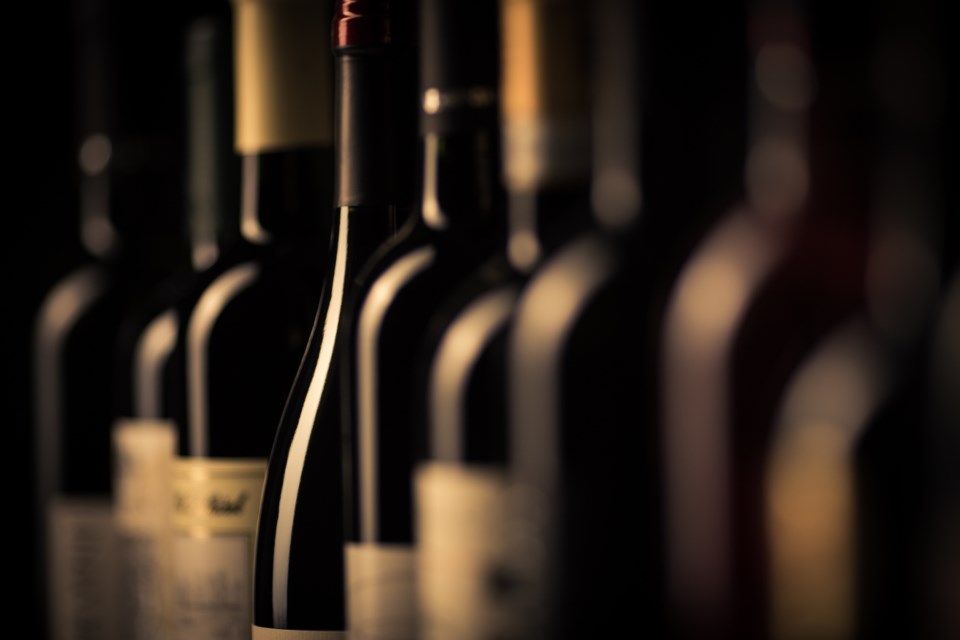TORONTO — Bar and restaurant owners who deal in specialty alcohol say they've carved out a new business model around Ontario's relaxed rules for takeout liquor, and they'll fight to make the system permanent.
In late March, the Ontario government allowed all restaurants to sell takeout alcohol alongside food to help them weather the COVID-19 lockdown. Some outlets that sell rare wines and spirits say customers are jumping at the chance to take home products that government-run liquor stores rarely carry.
Shamez Amlani, co-owner of La Palette, a French bistro in downtown Toronto, said his restaurant is selling more wine than it has in 20 years of business. Amlani said he sold 120 bottles in a single day near the start of the pandemic.
"Before, (my supplies) would have lasted me for months and months, but now I can go through them in a couple weeks," he said, adding his customers are drawn to the value of takeout wines versus the cost of dining in.
"If you were to spend $40 to $50 in a restaurant, you'd get the house wine or maybe the second-cheapest wine. But now, if you were to pull out $40 to $50, you're getting access to some pretty thrilling product that you might otherwise not know about."
Glenn Wesley, the owner of Bathurst Local, a Toronto bar that specializes in imported sake, wine and craft beer, said his restaurant will rely on takeout sales even after the pandemic is over because the extra income will help it recover financially from the lockdown.
In fact, the bar has rebranded as an e-commerce platform where it offers provincewide shipping for its drinks.
"I'd expect it to be a vital point of anyone's business model for the foreseeable future," said Wesley.
He said he'd also expect the industry to push back against any moves to scale back takeout alcohol laws as lockdown measures are lifted.
"I would be really surprised if they took it away at any point," said Wesley. "It's the new norm, and I don't think there's been a problem with it so far. Customers have really loved it, and so what would be the reason behind taking it away?"
A spokeswoman for the Ministry of the Attorney General reiterated that the takeout law is a temporary measure that ends on the last day of 2020, but did not say whether an extension is being considered.
"As Ontario carefully moves towards recovery, the government continues to work with licensed establishments to support a thriving hospitality industry in Ontario," Jenessa Crognali said in a statement.
"The health and well-being of Ontarians continues to be our top priority."
But as more restaurants build a customer base around takeout alcohol, some owners said they won't let things go back to normal without a fuss.
Stuart Sakai, who runs Sakai Bar in Toronto, said his bar gives customers a personal experience when buying drinks.
He said customers pay a marked-up price to experience the environment when they dine in, and part of that can be carried over when taking drinks home from a small restaurant.
"The thing I've enjoyed doing very much is trying to continue that experience," said Sakai, who says 500 people subscribe to a newsletter that advertises his imported sake offerings.
"When they come and pick it up, maybe we chat about it for a while, they still get that experience part of it. I think people do very much enjoy that."
Sakai said takeout sales might only be a supplemental form of income in the long term, but like other restaurant owners he said he'd like to see the new rules made permanent.
Amlani, who runs the French bistro, said he had spoken with his local member of provincial parliament about takeout laws even before they were implemented.
"I don't see why we should go back to what it was before," said Amlani.
"I will fight to keep this once Jan. 1 comes rolling around."
This report by The Canadian Press was first published July 8, 2020.
Salmaan Farooqui, The Canadian Press
